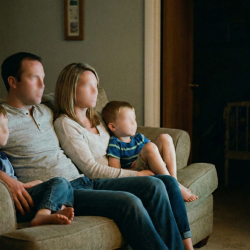A rigorous meta-analysis of the effects of short form video consumption has found an association with poorer cognition and mental health.
The study by Lan Nguyen, Jared Walters et al, published in the American Psychological Association’s journal Psychological Bulletin, reviewed 70 ‘empirical, qualitative’ studies from across five continents.
It concluded that short-form video use is associated with poorer attention, inhibitory control, language, memory, and working memory [that is, your ability to access things in your memory and put them to use]. It added that the ‘associations were consistent across youth and adult populations but were strongest when … general [short form video] use (as opposed to TikTok-specific use) was assessed’.
Researchers also found that short-form video use ‘was moderately associated with anxiety and stress and weakly associated with depression, loneliness, lower sleep quality, poorer well-being, and negative affect’. While some use of short-form video was found to ‘provide entertainment and social connectivity’, heavier users begin to experience these negative mental health effects very quickly.
Repeated exposure to short-form video may make users ‘less responsive to everyday sources of reward, possibly contributing to increased susceptibility to anxiety and depression’. The study suggests regularly using short-form video with endless scrolling and instant gratification could ‘reinforce patterns of emotional regulation that rely on digital content rather than restorative activities such as face-to-face social interactions or physical exercise’.
One area the study differed from previous meta analyses: it found short-form video use was not associated with negative body image and self-esteem. The study suggests that this may be due to the variety of people and body types that users are likely to encounter on any short-form video platform, as most if not all such platforms rely primarily on user-generated content.
Image from Unsplash.



























